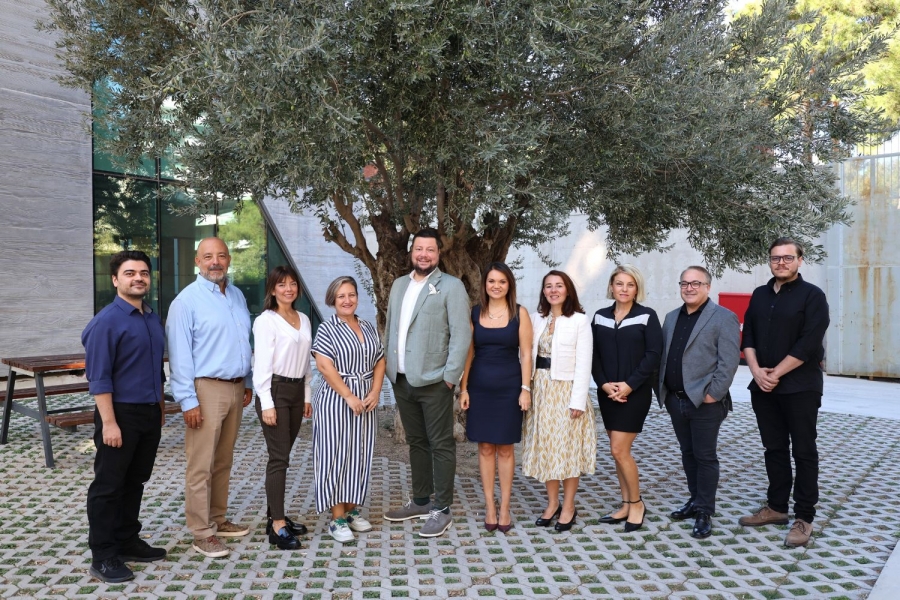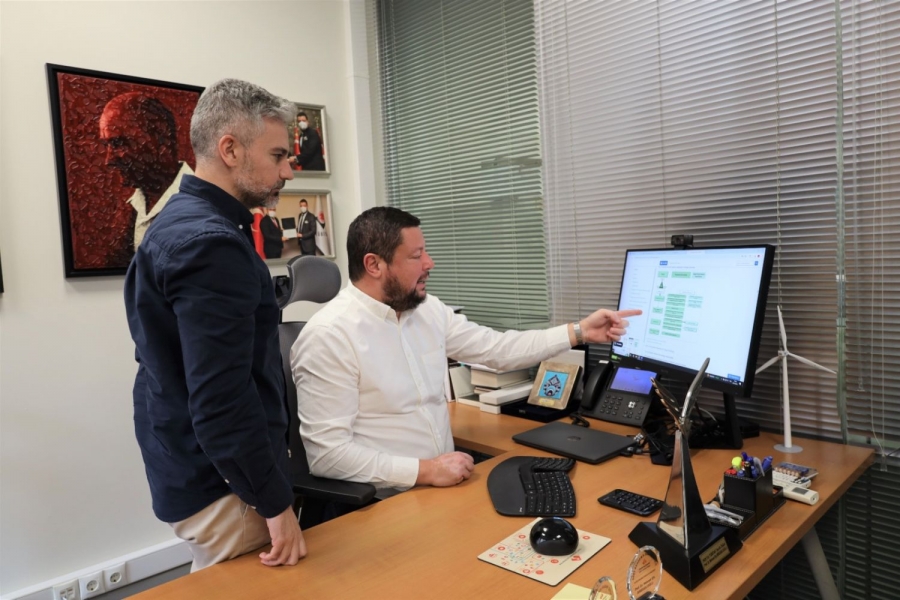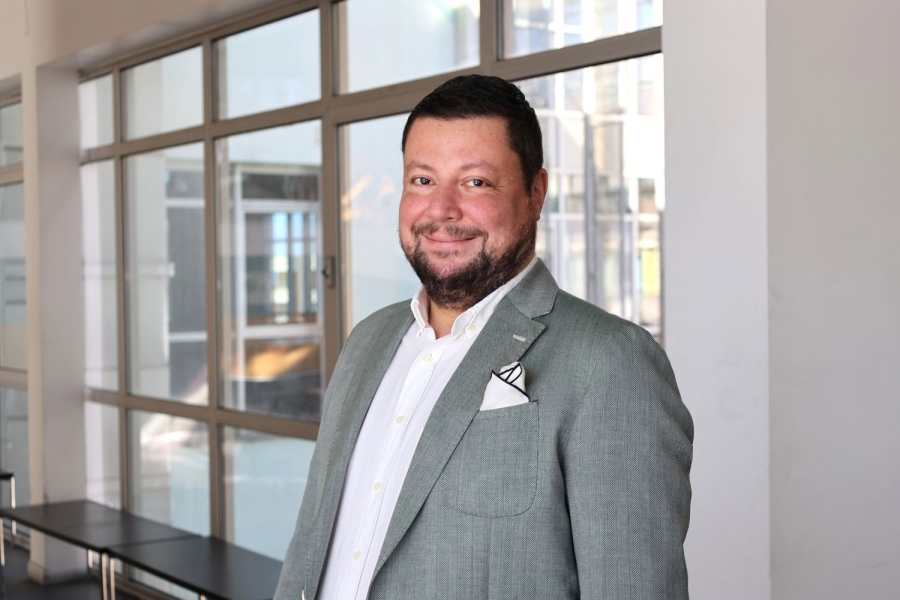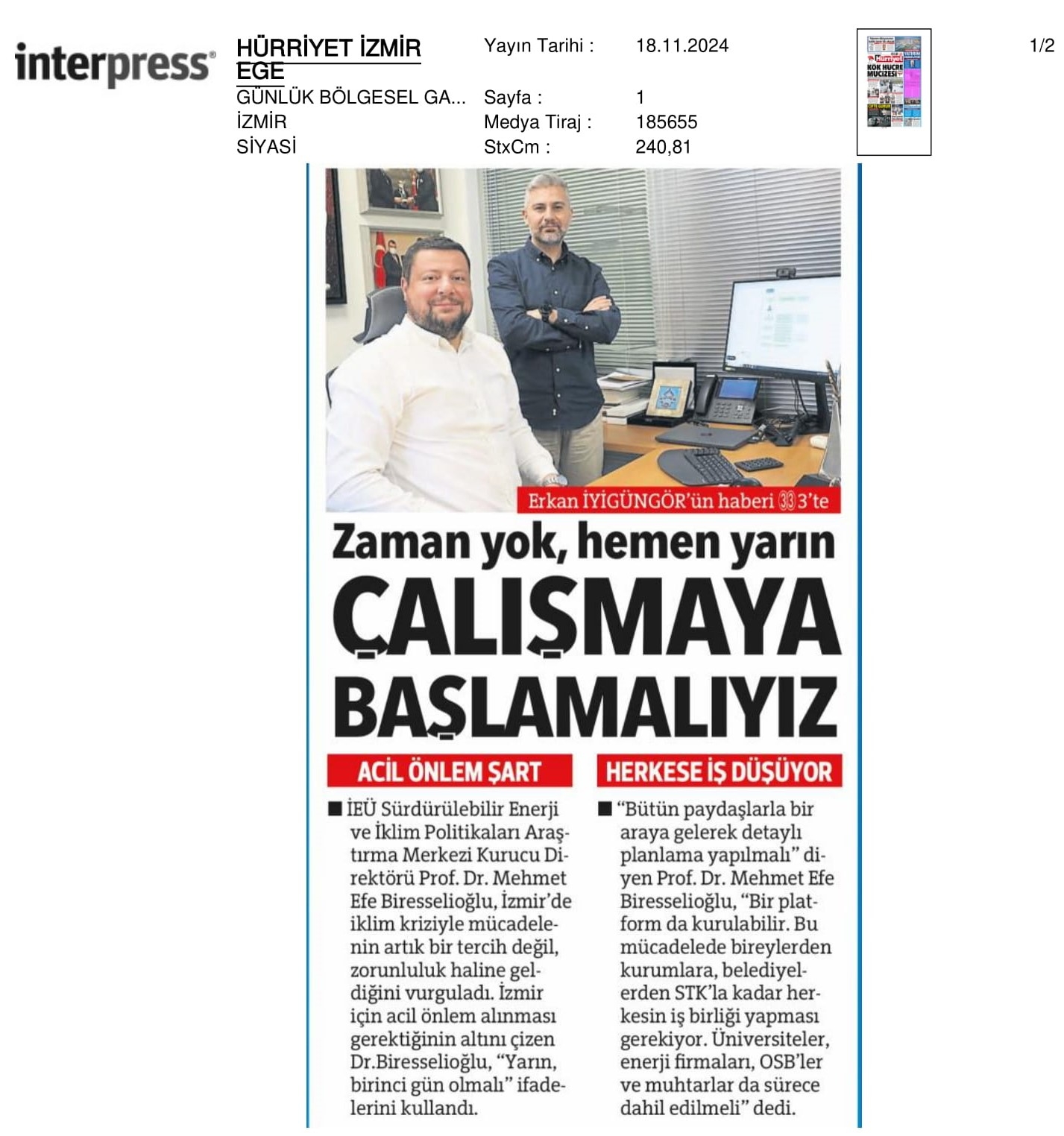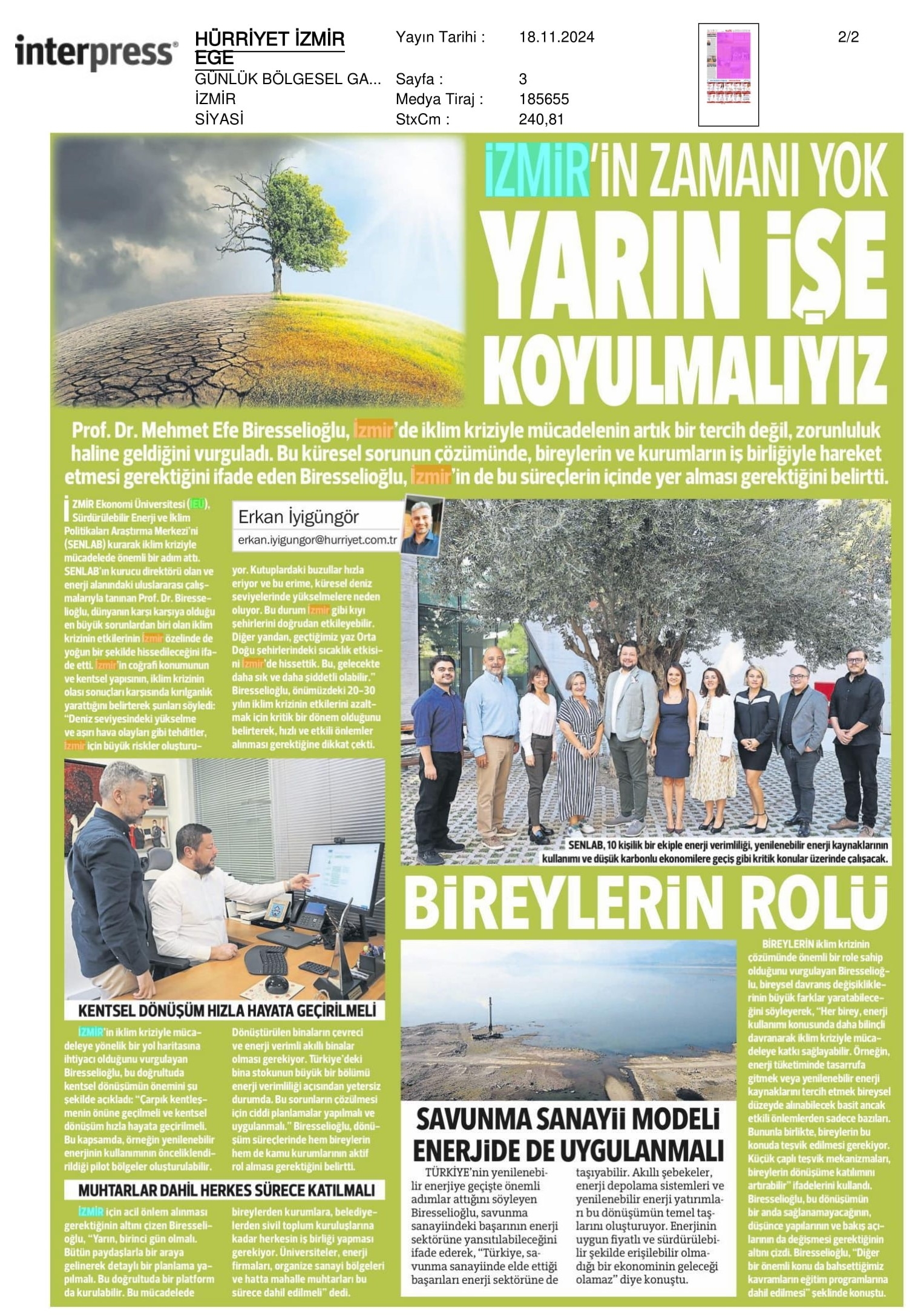“Izmir Has No Time to Lose; We Must Start Working Immediately”

Prof. Dr. Mehmet Efe Biresselioğlu emphasized that combating the climate crisis in Izmir is no longer an option but a necessity. Emphasizing the importance of collaboration between individuals and institutions in addressing this global issue, Biresselioğlu stated that Izmir must actively participate in these processes.
Izmir University of Economics (IUE) has taken a significant step by founding the Sustainable Energy and Climate Policies Research Center (SENLAB). As the founding director of SENLAB and an internationally recognized expert in energy studies, Prof. Dr. Biresselioğlu made exclusive statements to Hürriyet newspaper. He stressed that Izmir will feel the effects of the climate crisis acutely due to its geographical location and urban structure, which make it vulnerable to potential impacts. Prof. Dr. Biresselioğlu stated the following:
“Threats such as rising sea levels and extreme weather events pose significant risks for Izmir. The rapid melting of polar ice is causing global sea levels to rise, directly affecting coastal cities like Izmir. Additionally, last summer, Izmir experienced the heat effects typical of Middle Eastern cities—a phenomenon that could become more frequent and severe in the future.” Biresselioğlu noted that the next 20–30 years are critical for mitigating the effects of the climate crisis, calling for swift and effective measures.
URBAN TRANSFORMATION SHOULD BE ACCELERATED
Emphasizing the need for a roadmap in Izmir’s fight against the climate crisis, Biresselioğlu underlined the importance of urban transformation as follows:
"Unplanned urbanization must be curbed, and urban transformation should be implemented urgently. For instance, pilot areas prioritizing the use of renewable energy can be established. Transformed buildings need to be eco-friendly, energy-efficient, and smart. A significant portion of Turkey’s building stock is inadequate in terms of energy efficiency. Serious planning and implementation are required to address these issues.” He added that both individuals and public institutions must actively participate in transformation processes.
PARTICIPATION FROM ALL STAKEHOLDERS IS ESSENTIAL
Stressing the urgency of taking immediate action for Izmir, Biresselioğlu said, “Tomorrow must be day one. Detailed planning should be done by bringing all stakeholders together, and a platform can be established for this purpose. From individuals to institutions, municipalities to NGOs, everyone needs to collaborate in this effort. Universities, energy companies, industrial zones, and even neighborhood representatives should be included in the process.”
MUST BE ENCOURAGED
Highlighting the significant role individuals play in addressing the climate crisis, Biresselioğlu explained that changes in individual behavior can make a substantial difference and said, “Every individual can contribute to combating the climate crisis by being more conscious about energy use. For example, conserving energy or choosing renewable energy sources are simple yet effective steps individuals can take. However, people must be encouraged to act. Small-scale incentive mechanisms can increase participation in the transformation.”
Biresselioğlu also emphasized the importance of changing mindsets and perspectives, noting that these concepts should be integrated into educational programs.
Speaking about the concept of ‘energy citizenship’, Biresselioğlu stated the following: “We were the first to bring up this concept in Turkey. We have also published significant work on the topic. Our research addresses mechanisms that influence the decision-making of individuals, companies, and municipalities.”
WE CAN ALSO ACHIEVE IN THE FIELD OF ENERGY
Achieving Success in the Energy Sector
Pointing out that Turkey has taken notable steps toward transitioning to renewable energy, Biresselioğlu said that the success achieved in the defense industry could be mirrored in the energy sector. Biresselioğlu said, “Turkey can carry the success it achieved in the defense industry to the energy sector. Smart grids, energy storage systems, and renewable energy investments are the cornerstones of this transformation. An economy cannot have a future if energy is not affordable and sustainably accessible.”
Biresselioğlu also emphasized the importance of continuing strategic efforts led by the government and implementing innovative solutions.



